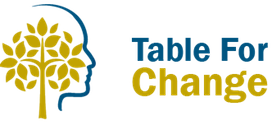Personal development has become necessary for people who want to live fulfilling lives in our fast-paced, constantly changing society. While there are many ways to grow personally, higher education is a particularly effective self-improvement accelerator. A degree program provides students with specialized information and abilities and promotes personal development on many levels.
Investigating which degrees have the most potential for personal development is essential as the need for lifelong learning grows. Which academic disciplines foster our cognitive, emotional, and social growth and provide professional opportunities? In this article, we’ll delve into the topic and examine the degrees that can spark personal development, enable people to find their interests, and open the door to a purposeful and fulfilling life experience.
• MBA (Master of Business Administration)
Finance, sales, operations, planning, and administration are just a few business-related topics covered in an MBA program. This comprehensive knowledge gives Individuals a flexible skill set, which they can use to make numerous contributions to their personal development.
Leadership growth is one of the main areas where an MBA fosters personal development. Leadership abilities which include strong interpersonal skills, making decisions, and team supervision, are frequently emphasized in MBA programs. Students can challenge themselves to grow as powerful and innovative leaders through coursework, research projects, and practical experiences.
An MBA also offers a platform for professional development through networking opportunities. A varied cohort of individuals from different industries, ethnicities, and origins are frequently brought together through MBA programs.
Accredited and accelerated online MBA courses have grown in popularity recently and are now more accessible and flexible for working professionals. An interesting learning experience is guaranteed by these programs’ use of interactive technologies, online classrooms, and collaboration platforms.
Additionally, online MBA programs encourage self-discipline, time management, and adaptability, which are important life and career qualities that enable personal progress outside the classroom.

• Psychology
People who study psychology are submerged in a world of introspection as they probe the depths of their ideas, feelings, and motives. This self-reflection promotes self-awareness, personal development, and a clearer understanding of assets, liabilities, and core values.
A thorough grasp of human behavior, including the nuances of cognitive operations, feelings, and social relationships, can also be gained from studying psychology. Thanks to this understanding, the ability to manage relationships more skillfully fosters empathy and enhances communication abilities.
• Sociology
Sociology students develop a profound understanding of the variety of human experiences and a heightened feeling of empathy by studying subjects like disparities, changes in society, and the effects of institutions. This field encourages people to question accepted beliefs and challenge presumptions while giving them the investigative and analytical skills necessary to examine society’s problems.
Students develop a larger perspective, cultural competency, and a profound grasp of how people interact with society by being immersed in sociological theories, methodologies, and conversations. They gain analytical, interpersonal, and teamwork skills through coursework and fieldwork essential for navigating a complicated environment and advancing personally.
• Philosophy
The study of philosophy leads people on a path of in-depth self-examination and analytical thought as they wrestle with fundamental issues relating to the existence, ethics, expertise, and the nature of reality. Examining one’s opinions, prejudices, and preconceptions is encouraged by carefully studying philosophical texts and concepts, promoting intellectual modesty and tolerance of many viewpoints. Philosophy encourages people to have intellectual conversations, improving their capacity to communicate and explain difficult concepts.
Additionally, the emphasis on logical thinking and in-depth analysis in the discipline gives students priceless problem-solving skills that apply to many areas of life. People who study philosophical traditions that date back millennia have a deeper appreciation for history and culture as well as a knowledge of the collective wisdom of humanity.
• Literature
Students engage with multiple points of view, cultures, and historical periods by studying numerous literary works and developing compassion, analytical thinking, and creative abilities. A deeper understanding of the human condition and one’s role in the world can be attained by individuals via the examination of complex topics, characters, and storylines.
A degree in literature fosters intellectual curiosity, reflective thinking, and a lifetime love of reading and learning, enabling students to develop their communication and thinking skills. Additionally, the degree fosters a sense of cultural understanding and an appreciation for the influence of storytelling while building the ability to analyze and evaluate texts, cultivating key abilities applicable to many occupations.
• Environmental Science
This degree encourages people to build a strong connection with nature and thoroughly grasp the planet’s ecosystems. It also creates a strong feeling of environmental conscience. It prompts personal growth through critical thinking and problem-solving skills as students grapple with complex environmental challenges and devise innovative solutions.
Moreover, the study of environmental science cultivates a holistic perspective by exploring the intricate relationships between humans, the environment, and sustainable development. Students get amazing opportunities that enhance personal growth through fieldwork, research projects, and exposure to ecological concerns.
• Fine Arts
People are encouraged to explore their deepest ideas, feelings, and perspectives by discovering various artistic forms, such as sculpture, painting, or theatrical performances. It enables them to share their particular experiences and insights with the world. Self-expression and reflection encourage personal growth by allowing people to understand better who they are, what they stand for, and how they fit into the world.
Studying fine arts encourages people to accept vulnerability, take chances, and question social norms to push their limits and broaden their creative horizons. Students gain resilience, adaptability, and a solid work ethic as they interact critically with classmates and mentors, receive constructive criticism and participate in critical discussions.
• Communications
Students gain these skills through education in media studies, public speaking, and interpersonal communication. They also learn to communicate properly, listen intently, and participate in meaningful conversations. This degree fosters personal growth by encouraging self-assurance, empathy, and understanding. It provides learners with the skills to navigate various social and professional settings. Furthermore, studying communications fosters critical thinking, media literacy, and the ability to analyze and evaluate information properly.
Conclusion
There is no one-size-fits-all solution for the best degrees for fostering personal growth. But degrees that promote critical thinking, innovation, reflective thinking, and multidisciplinary learning frequently favor human development. The secret is to find a degree that fits your hobbies, interests, and long-term ambitions. It will help you build a strong sense of self, expand your horizons, and acquire the necessary abilities to succeed in a constantly changing environment.


















